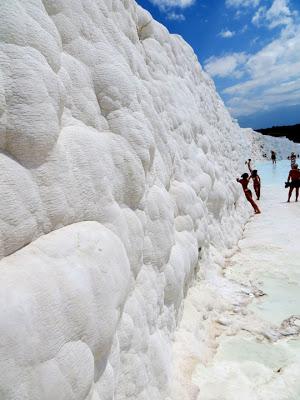
The hot springs at Pamukkale have been used as a spa since the 2nd century BC
A year ago in May I was in Turkey, first in Istanbul, and then for a short tour in southern Turkey. Our tour base was Selkuk, the modern city at the ancient site of Ephesus. On our first day, we visited Ephesus and other ancient sites around the city. (See my post for June 10, 2013.) On our second day, our guide took us to Pamukkale, a three and half hour bus trip through the verdant Menderes river valley, so we could visit the ancient Greek city of Hierapolis and the hot springs and travertine terraces on which the city was built.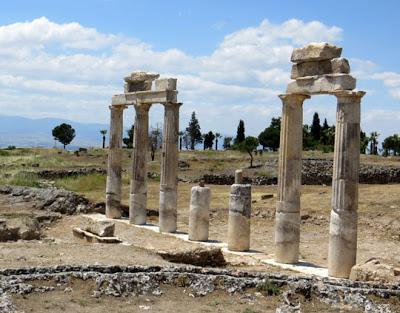
Hierapolis was built on a plateau above the Menderes River Valley
It seemed like a long way to go, but was worth the ride. We stopped on the way at a rest stop (where I bought an absolutely delicious glass of fresh squeezed orange juice) and for lunch at a tourist restaurant where we selected food from a long buffet.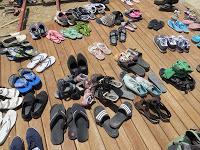
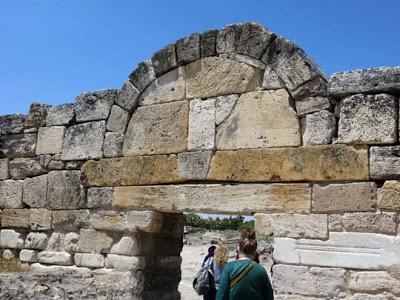
Entrance gate to the ancient city of Hierapolis
We then entered the gate of the ancient city and had a short tour of the ruins. It was a beautiful day, with blue skies, fluffy clouds, and red poppies on the hillside. Nature had taken over what once had been a bustling city in Greek and Roman times, so we had to use our imagination to picture what life had been like long ago.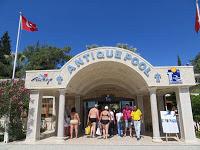
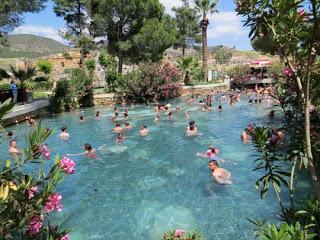
Cleopatra's Pool (note submerged column fragments)
I had brought my swimming suit, so I changed and went into the water. How could I resist the opportunity to swim in a pool where, perhaps, Cleopatra herself might have once bathed! The water was lovely but the main hazards were the fallen marble columns, which provided underwater seating, but also places to stub ones toes.
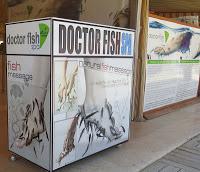
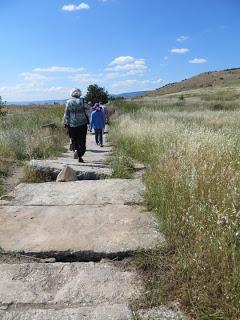
Ancient Roman road, Hierapolis
At the end of the afternoon we had time to walk by ourselves among the ruins, following ancient paths through the city. Our final stop in Pamukkale was at a factory where they carved stone into cups, vases, plates, jewelry and more. After watching a demonstration, we were led into the shop. Despite the commercial nature of the enterprise, it was actually quite fascinating and many of the items were quite beautiful.The following morning, our last day in Selkuk, we were on our own and I took the opportunity to wander around town, visiting the ruins of St. John’s on the hill, watching the storks at their rooftop nests, visiting a rug shop, buying some books and other souvenirs, and eating lunch at one of the many restaurants, where I had a delicious eggplant and pepper dish. I wished we had had more time in southern Turkey, but this gives me a reason to return some day.
My other posts on Turkey:
4/8/2013 Room With a View
8/27/2012 Ephesus: Temple of Artemis
8/20/2012 Letter from Istanbul
8/6/2012 Istanbul: A Food Lover's Delight
5/28/2012 Istanbul: Museum of Innocence
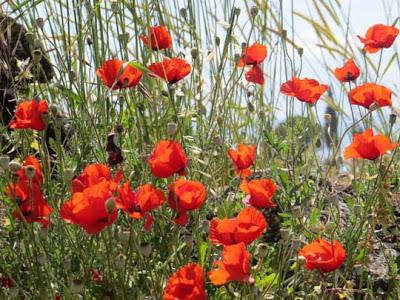
Poppies, Hierapolis
